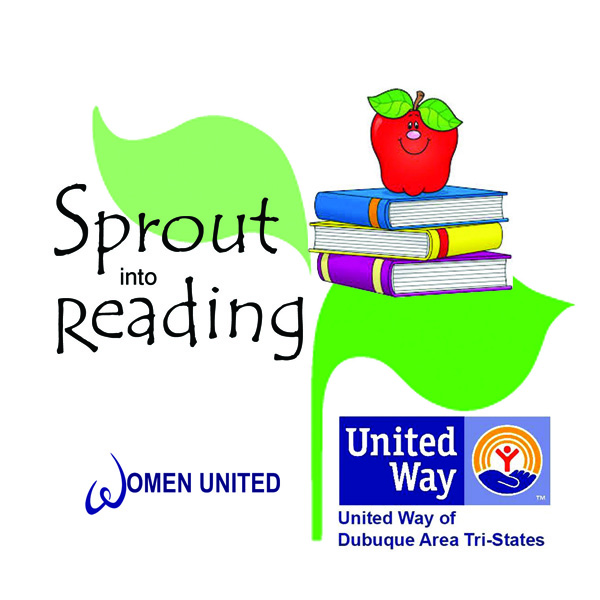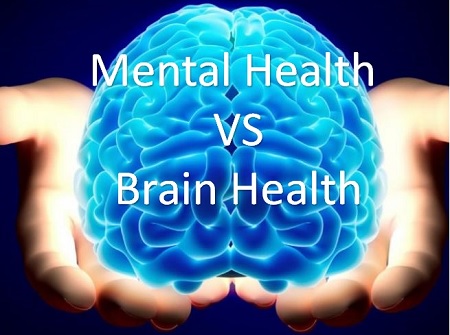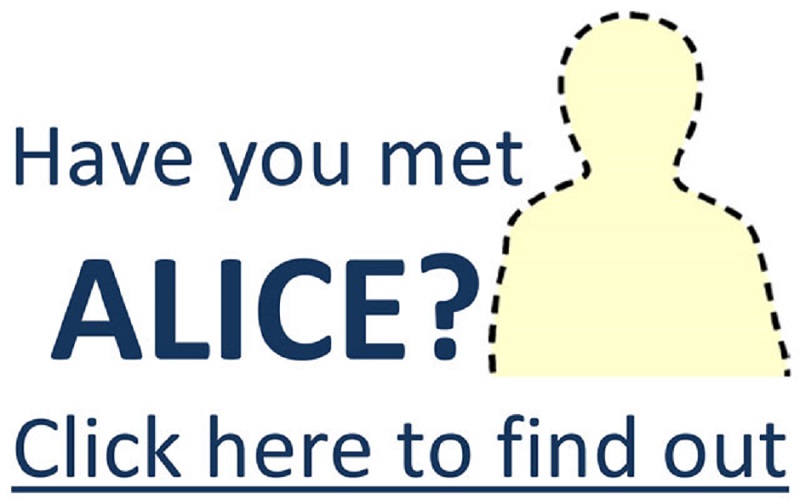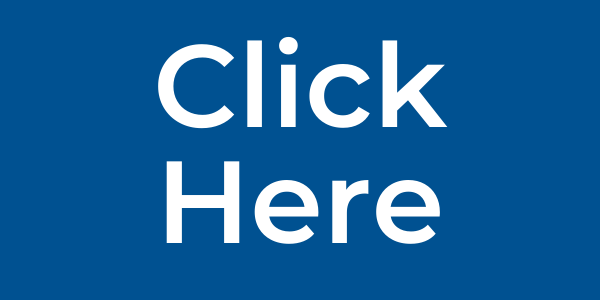Pillars
Education
A good education is the foundation for a successful life. United Way funding priorities include:
-
Mentoring opportunities
-
School readiness and preparation for succeeding in later grades
-
Transitioning young adults to post-secondary education, the workforce, or public service
-
Assuring individuals with disabilities have the highest quality of life
Sprout Into Reading

The program, developed through research on similar programs in other areas of the state and in discussion and collaboration with multiple organizations, targets low-income youth ages birth to five years of age. A key focus of the program is to provide direct distribution of books to these children through strategic partnerships with:
- Parents as Teachers
- Four Oaks
- Helping Services for Youth & Families
- Parent Share & Support, Inc.
- Regional Medical Center
- Crescent Community Health Center
- Dubuque County Visiting Nurses Association
- Guttenberg Municipal Hospital
The program is currently operated through United Way's WOMEN United, a group of philanthropic women who are actively engaged in addressing unmet needs in our community.
For more information on the program, call United Way at 563.588.1415.
|
Thank you to the Dubuque Racing Association for their generosity in providing start-up funds for this program!
|
Health
Our Community deserves to be healthy and strong. United Way's funding priorities include:
- Access to physical and mental health care
- Strategies to live a healthy lifestyle to support mental or behavioral health
- Healthy eating and physical activity
- Education about violence prevention and healthy relationships
- Access to services for victims of disaster
ACEs
Adverse Childhood Experiences are incidents that harm social, cognitive, and emotional functioning, and dramatically upset the safe, nurturing environments children need to thrive. To learn more about ACES, please click here.
SingleCare
SingleCare Discount Prescription Savings Program
Printable Info Flyer - English
Printable Info Flyer - Spanish
Where to Get a Card
Please contact United Way of Dubuque Area Tri-States to find out where to get your free SingleCare prescription drug discount card. These cards are being distributed through participating United Way partner agencies and other organizations in their area for people with no prescription drug coverage.
There is no cost to you or your family for this discount card and there are no enrollment or eligibility requirements. Find out more information here.
Where to Use the Card
Click here to learn which pharmacies in your county accept the FamilyWize prescription drug discount card. Click here for the medication price lookup tool.
How it Works
The SingleCare Prescription Drug Discount Card enables you to receive discounted pricing on prescription drugs. It can offer immediate savings on prescription drugs at participating pharmacies for people that have no health insurance, during deductible periods, and for prescription medicine not covered by health insurance, Medicare, and other benefit plans. This is not insurance, nor is it intended to replace insurance.
Simply present your SingleCare card with each prescription from your doctor to the participating pharmacy at the time of purchase to receive your discounts. If you need to transfer a prescription, bring your empty prescription bottle or label with you to the pharmacy.
Save an average of up to 42% or more of the pharmacy's usual and customary retail price of prescription drugs, with the highest savings on generic drugs.
Your cost will be the discount price with the SingleCare card or the pharmacy's usual and customary retail price, whichever is the lower. this means you are assured the lowest price in that store, at the time your purchase the prescription medicine. If the pharmacy's price is lower, there is no savings or discount and the SingleCare card cannot lower the co-pay for medicine covered by insurance.
Brain Health
 Creating awareness and reducing the stigma around mental health starts with you. Let's think of mental health as brain health. Become an advocate in the community, create awareness in your workplace, or create awareness around the opportunities you or your organization provide for brain health. Click here to see the training opportunities available to learn more about brain health and more. To provide information on training or opportunity in the community contact admin@dbqunitedway.org.
Creating awareness and reducing the stigma around mental health starts with you. Let's think of mental health as brain health. Become an advocate in the community, create awareness in your workplace, or create awareness around the opportunities you or your organization provide for brain health. Click here to see the training opportunities available to learn more about brain health and more. To provide information on training or opportunity in the community contact admin@dbqunitedway.org.
Partners working on Brain Health Training Work Group: United Way of Dubuque Area Tri-States, Community Foundations of Greater Dubuque, Substance Abuse Services Center, Dubuque Community YMCA/YWCA, Hillcrest Family Service, Crescent Community Health Center, University of Dubuque, 2-1-1 Information and Referral, Hawkeye Area Community Action Program.
Income
Every citizen deserves to feel financially stable. United Way's funding priorities include:
Programs that provide for basic needs, including physical and/or financial security, Programs that help individuals/families navigate human and legal services to secure basic needs and address financial crises, Programs to help individuals/families improve money management skills to secure and maintain financial stability.
ALICE
ALICE (Asset Limited, Income Constrained, Employed) represents the increasing number of individuals and families who are working but are still unable to afford basic needs. Iowa is one of the few states that have participated in the ALICE Project, therefore information for Illinois and Wisconsin are unavailable at this time.
ALICE data discovered that ALICE lives in every Iowa county; ranging from 26% to 52% of households. The United Way ALICE Project is designed to create conversations and a better understanding of the scope of the struggles that working Americans face. It also acts as a call to action! The ALICE Project illuminates issues that align with the three United Way pillars: health, education, and income stability.
For the full report:
As United Way of Dubuque Area Tri-States develops investment strategies to improve the health, education, and income of our communities, the following statistics, and a wealth of additional information will be used to identify areas for improvement.
| ALICE Reports for Dubuque Area Tri-States | ||||||
| Allamakee | Clayton | Delaware | Dubuque | Fayette | Jackson | |
| Population | 14,001 | 17,735 | 17,445 | 97,003 | 20,391 | 19,529 |
| Number of Households | 6,035 | 7,622 | 6,882 | 37,710 | 8,333 | 8,427 |
| Median Household Income (State Average$56,247) | $48,089 | $48,482 | $59,452 | $60,456 | $47,711 | $49,115 |
| % of Poverty | 11% | 10% | 9% | 11% | 13% | 14% |
| % ALICE | 27% | 28% | 22% | 22% | 28% | 22% |
| Unemployment Rate (State Average 3.9%) | 4.70% | 4% | 3.40% | 5% | 4.30% | 4.80% |
| *Survival Budget for Single Adult | $19,260 | $18,564 | $19,920 | $19,296 | $19,260 | $19,260 |
| **Survival Budget for Family of Four | $57,960 | $57,348 | $56,052 | $58,644 | $56,832 | $53,808 |
| Hourly Wages for Single Adult | $9.63 | $9.28 | $9.96 | $9.65 | $9.63 | $9.63 |
| Hourly Wage for Family of Four | $28.98 | $28.67 | $28.03 | $29.32 | $28.42 | $26.90 |
| *The US Calculates the poverty level at $11,800 for a single adult | ||||||
| **The US Calculates the poverty level at $24,300 for a family of four | ||||||
To check out individual county information, please click the links below:
My Smart Money:
Looking for a resource to help manage money? Check out this free online interactive program that offers calculators, quizzes, and other tools.
Making Tough Choices & Breaking The Cycle
Making Tough Choices Challenge and Breaking the Cycle of Poverty:
Try to complete the challenge of making tough choices by putting yourself in the shoes of a family that is above the federal poverty level, but struggling each month to meet a survival budget.
To Take the Tough Choices Challenge:
To break the cycle of poverty.
Child Care Needs Assessment
Child Care Needs Assessment
Project HOPE, an initiative of the Community Foundation of Greater Dubuque, conducted a needs assessment that took a focused look at needs and barriers to economic opportunity in Dubuque. To select focus areas, 75 professionals were surveyed across a broad cross-section of service providers. Mental health and childcare services were overwhelmingly identified as needs.
To access the full report:
2-1-1 Information & Referral
2-1-1 Connecting to the Services
Many people in our community struggle when trying to navigate and make connections to the services they need. United Way 2-1-1 is a free health and human service information and referral resource. You can also look at the 2-1-1 Counts and see what the trends are for your specific area. Click here to see more information.
Individuals can call 2-1-1, 1-800-244-7431 or search our website database for a variety of resources including food, clothing, shelter, information about the Affordable Care Act, free medical clinics, employment supports, energy assistance, and much more.
If you would like to see if your agency/organization information could be placed on the 2-1-1 site and used for referrals, please click here to check out the inclusion/exclusion policy, add a new agency, or update your agency info!
NEW- 2-1-1 Texting and 2-1-1 App! Simply text your zip code to 898211 or download the 211 Iowa app to get connected today!
Who do we help
Individuals, families, and the greater community all benefit from United Way 2-1-1. Those who call 2-1-1 work with trained and certified Information and Referral Specialists who assist individuals and families in finding possible resources to meet their needs. Information about where people call from (i.e., zip code), what they call about, and gaps in services are then shared to assist with community planning.
- Basic Human Needs Resources – including food and clothing banks, shelters, rent assistance, and utility assistance.
- Physical and Mental Health Resources – including health insurance programs, Medicaid and Medicare, maternal health resources, health insurance programs for children, medical information lines, crisis intervention services, support groups, counseling, and drug and alcohol intervention and rehabilitation.
- Work Support – including financial assistance, job training, transportation assistance, and education programs.
- Support for Older Americans and Persons with Disabilities – including adult day care, community meals, respite care, home health care, transportation, and homemaker services.
- Children, Youth, and Family Support – including childcare, after-school programs, educational programs for low-income families, family resource centers, summer camps, and recreation programs, mentoring, tutoring, and protective services.
- Emergency Suicide Prevention – referral to suicide prevention help organizations. Callers can also dial the following National Suicide Prevention Hotline numbers operated by the Substance Abuse and Mental Health Services Administration of the Department of Health and Human Services:
- 1-800-SUICIDE (1-800-784-2433)
- 1-888-SUICIDE (1-888-784-2433)
- 1-877-SUICIDA (1-877-784-2432) (Spanish)
Delaware & Dubuque Homeless Hotline- 1-833-587-8322
Clinton & Jackson Homeless Hotline- 1-833-849-8976
Hotlines are available from 8a-4:30p Monday-Friday. During unstaffed hours, please contact 2-1-1 by dialing 2-1-1 from a landline or 1-866-469-2211 from a cell phone.
Coordinated Entry
Eastern Iowa Coordinated Entry Service Region
Coordinated Entry (CE) is a process developed to ensure that all people experiencing a housing crisis have fair and equal access to safe housing. CE is designed to quickly identify, assess, refer, and connect people to housing and community assistance based on their strengths and needs. A standardized system allows all those seeking housing to participate in a standardized survey, allowing for those with the greatest need, specifically those that are literally homeless (category 1 homelessness), access to housing resources in their community.
Housing and Urban Development (HUD), defines category 1 homelessness as:
(1) Individual or family who lacks a fixed, regular, and adequate nighttime residence, meaning: (i) Has a primary nighttime residence that is a public or private place not meant for human habitation; (ii) Is living in a publicly or privately operated shelter designated to provide temporary living arrangements (including congregate shelters, transitional housing, and hotels and motels paid for by charitable organizations or by federal, state and local government programs); or (iii) Is exiting an institution where (s)he has resided for 90 days or less and who resided in an emergency shelter or place not meant for human habitation immediately before entering that institution.
CE will allow for communities to become united and provide services based on client needs rather by provider eligibility. CE enables providers to create a flowing system of available housing to those who need it most. Most communities lack the resources needed to meet all the needs of people experiencing homelessness. This combined with a lack of well-developed coordinated entry processes has resulted in severe hardships for people experiencing homelessness. They often face long waiting times to receive assistance or are screened out of needed assistance. CE helps communities prioritize assistance based on vulnerability and severity of service needs to ensure that people who need assistance the most can receive it in a timely manner. CE also provides information about service needs and gaps to help communities plan their assistance and identify needed resources.
To visit the regional website:
FreeWIll
FreeWill is a social venture founded at Stanford University. Our mission is to make estate planning more accessible to people like you and empower you to support the people and causes you love.
To visit the website:

